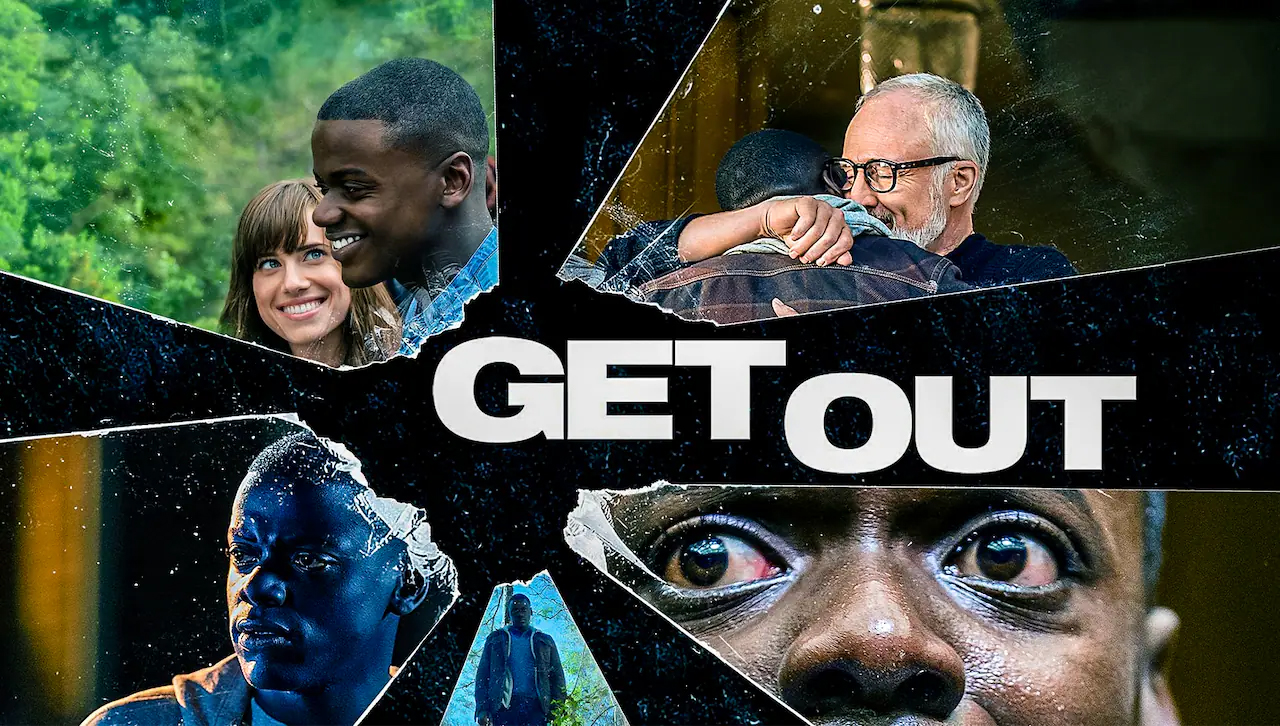SPOILERS AHEAD (obviously)…
Jordan Peele’s 2017 horror film, Get Out, is renowned for its many easter eggs strategically planted throughout the script. Although the film generally makes for a thrilling and entertaining couple of hours, the hidden easter eggs alone are a strong reason to watch and rewatch (and rewatch again).
Jordan Peele’s directorial debut starring Daniel Kaluuya as main character, Chris, and Allison Williams as antagonist, Rose, is an intentional piece with a focus on racism in America, told through metaphor and the blending of many intricacies to create a fluid narrative. Each viewing of the film seems to reveal another new element that thickens the story and explores the deep themes of it even further, proving the potential for its easter eggs to be boundless.
Soundtrack
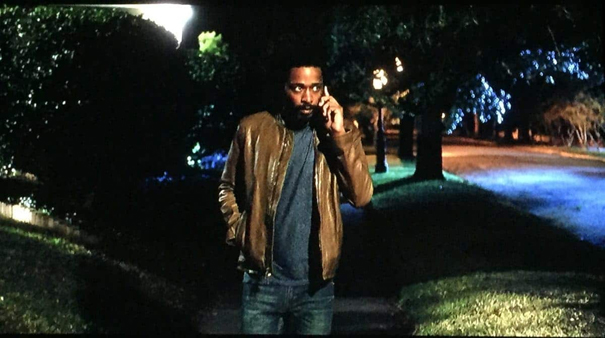
The first song played in Get Out is “Run Rabbit Run” by Flanagan & Allen. The opening scene presents Andre Hayworth walking alone at night through a suburban neighborhood when a car pulls up next to the sidewalk. The car door opens and “Run Rabbit Run” can be heard booming from inside. Andre is then forced into the back of an unknown character’s car, later revealed to be Jeremy Armitage. The song by itself is a warning to a rabbit, advising the animal to run from a farmer that is hunting him, and it holds a lot of relevance in this film, as it is reminiscent of what its audience wants to say to the protagonist, Chris, as well as the victims of the Armitage family. It evokes this sense of helplessness as the audience can only sit and watch, but have that strong urge to yell at these characters and warn them to run, to get out. The song really helps to solidify that “don’t open the closet!” sort of vibe that the audience is meant to feel throughout the film.
If “Run Rabbit Run” did not send a clear enough message that the protagonist is headed into a dangerous situation and should turn back, the very next scene shows the title card accompanied by “Sikiliza Kwa Wahenga” by Michael Abels, a Swahili song that translates to “listen to the ancestors.” The lyrics of the song translated to English read “brother, listen to the ancestors. Run! You need to run far! Listen to the truth. Brother, listen to the ancestors. Run! Run! To save yourself, listen to the ancestors.” In the context of the film, it can be presumed that “the ancestors” are those that have already fallen victim to the Armitage family and attempt to warn Chris about them. In a literal sense, the ancestors of the Armitage family have taken over the bodies of the victims, so those that try to warn Chris are quite literally “the ancestors,” making this song a very fitting choice for the film.
The following scene follows Chris getting ready for a trip to the Armitage household, where he will meet the family of his girlfriend, Rose. “Redbone” by Childish Gambino plays during this quick montage. This song features lyrics such as “stay woke” and “they ‘gon find you, gon’ catch you sleepin.’”
These three songs, all pushing the message of a warning to the audience, promote the idea that the protagonist is not safe where he is and should escape. They immediately set the tone for the film and evoke a sense of imminent danger within the audience, proving to be an effective technique within the horror genre.
Symbolism
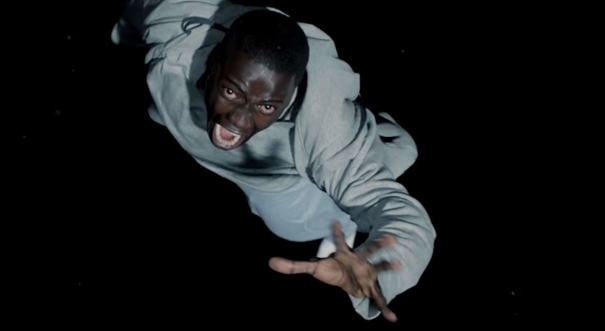
Metaphors and symbolism are very prevalent in Get Out. Rose eating fruit loops from a bowl and sipping milk from a glass, two food items that would normally be mixed but sit in two separate containers by her own volition is a clear reference to segregation in America. The game of Bingo that takes place during the party at the Armitage household turns into a silent auction for Chris’s body once he leaves the premises, reminiscent of when slaves were auctioned in the 1800’s. Beyond the quick segregation scene and gesture toward slavery in America, there lies a healthy amount of symbolism within the film that is vital to the comprehension of the narrative as a whole.
As a photographer, protagonist Chris’s objective is for others to see the world through his lens. The irony in this is that the objective of the Armitage family (more specifically, Jim Hudson) is to see the world through his eyes. This allows for some subtle foreshadowing in the film when Chris meets Jim, an admirer of his work, who talks to him about his love for visual art and photography despite being blind. During this interaction, he refers to life as a “sick joke,” a hint that he is jealous of Chris and wants his ability to see, which he later admits.
Missy Armitage, the matriarch of the household, clinks a silver spoon to a teacup to hypnotize the family’s victims. Early in the film, Chris, Rose, Dean, and Missy sit outside at a table as the parents get to know Chris. Georgina, who appears as a hired servant but is later revealed to be Rose’s grandmother in the body of another Armitage family victim, is partially awakened from her hypnosis when she hears the silver spoon clink against Missy’s cup. Unable to fully snap out of the hypnosis, she overpours a glass with tears in her eyes. Missy’s silver spoon represents her power over the victims in the film, but stretching beyond the scope of the narrative, the silver spoon acts as a symbol of wealth and privilege, a prominent theme in Get Out.
Toward the end of the film, Chris is bound to a chair and forced to watch a video explaining the Coagula surgery, in which Jim is meant to inhabit Chris’s body. He is then forced to speak with Jim via video call, who tells him that this process is supposed to prepare him for the procedure. While strapped to the furniture, he begins to pick at the arms of the chair with his fingers, slowly tearing away the exterior. A later shot shows the teacup with a silver spoon clinking against it, clearly meant to send Chris back into a hypnotic state. Jeremy Armitage then releases him from the chair and puts him in a wheelchair, bringing him to a different room. When Jeremy turns his back to him, Chris stands and bludgeons him unconscious before pulling two pieces of cotton from his ears, revealing that he stuffed the insides of the chair in his ears to prevent himself from hearing the spoon clink to the cup. This is another symbol of slavery in America, as Chris was forced to ‘pick cotton’ to save himself, reminiscent of when slaves did the same.
The Sunken Place is a critical component of the film. It is also a symbol in and of itself. When the victims in the film are hypnotized, they enter what Missy coined “The Sunken Place,” a state of consciousness in which they can see and hear but have little to no control at all over their words and actions, which allows Armitage family members to take control. In an interview, writer and director, Jordan Peele stated that The Sunken Place represents the marginalization of Black voices and experiences. He says “The Sunken Place means we’re marginalized. No matter how hard we scream, the system silences us.” This theme of oppression and marginalization is another prevalent motif in the film.
The deer is arguably the most prominent symbol in Get Out. As it is originally introduced when hit by Rose’s car, Chris approaches the deer and looks at its helpless, desperate face as it lies on the ground. This resembles his mother lying helpless on the ground after she was hit by a car and passed away from her injuries, which is later revealed. It is possible that the deer is his mother attempting to send him a sign to turn back. The deer’s desperation is also representative of the Armitage family victims whose bodies have already been taken over. When Rose hits the deer, she shows no emotion and continues to be stoic and emotionless throughout the film. This primary scene with the deer is the audience’s first hint that she lacks empathy.
When Chris and Rose arrive at the Armitage household, they tell Dean and Missy about the deer. Dean is glad that they killed the deer, as he says “they’re like rats. They’re taking over the ecosystem. One down, a couple hundred thousand to go.” Revisiting the idea that the deer is representative of the Armitage family victims, it is easily construable that Dean’s perspective on deer reflects his perspective on the people that the Armitage family prey on.
Later in the film, when Chris is bound to a chair in the basement in preparation for the Coagula procedure, he spots a deer head mounted to the wall, looking down on him as he sits helpless, reversing their roles. After Chris bludgeons Jeremy, he takes the deer head off the wall and impales Dean with its antlers, entirely flipping that symbol of helplessness and desperation on its head to emerge as the story’s hero.
Wordplay
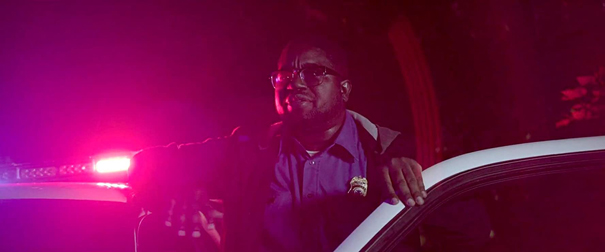
Although Get Out is a thriller that covers very dark subject matter, there is quite a bit of satire and comic relief scattered throughout the film. The character of Rod, a TSA agent and the best friend of the film’s protagonist is largely responsible for this comic relief, as he represents the audience’s perspective and portrays it with witty quips thrown into his dialogues. Aside from Rod, however, there are a few plants within the script that add subtle moments of dark comedy through wordplay and foreshadowing.
At the very beginning of the film, Chris expresses his worry about meeting Rose’s parents, especially when Rose reveals that she did not inform them of his race. He tells her in a joking manner that he doesn’t want to “get chased off the lawn with a shot gun.” This irony comes into play at the end of the film when Chris runs out of the house to escape and it is Rose herself that chases him off the lawn with a shot gun.
When Chris and Rose first arrive at the Armitage household, Dean gives Chris a house tour. As they walk by the door to the basement, Dean walks past it and mentions that “there’s some black mold down there.” That same basement is the place where their victims are held hostage and forced into surgery. He also alludes to two of the family’s victims when he says to Chris “we hired Walter and Georgina to care for my parents,” when in fact, Walter and Georgina are his parents that have taken over the bodies of two victims.
Later in the film, when Chris is forced to watch the Coagula video while bound to the chair, “a mind is a terrible thing to waste” can be heard. This is the United Negro College Fund slogan, but for the purpose of the film, it represents the Armitage perspective that allowing a white mind to die with age is a waste and should instead be preserved, whereas depriving a black mind of control is not considered problematic to them. This warped and twisted way of thinking is an accurate satire of the absurdity being exhibited by the Armitage family.
Not-so-small details
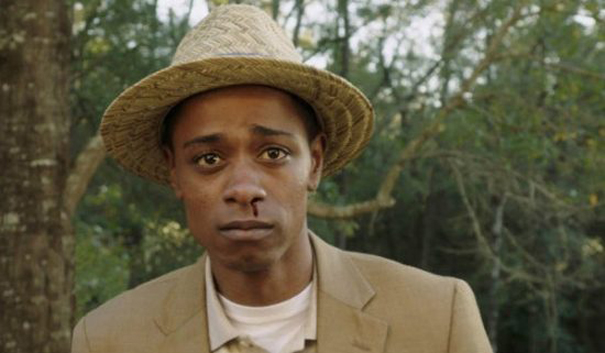
Every component of Get Out is very intentional, making even the smallest of details critical to the plot. These details that may seem minor at first reveal themselves to be much more significant upon a second viewing of the film. Having so many details within the story that are plants or foreshadows for bigger ideas is a large part of what makes this film so memorable and rewatchable.
Early in the film, Chris’s habit of smoking cigarettes is introduced. Aside from being a gateway to the Armitage family discussing Missy’s hypnosis techniques with Chris, it acts as a foreshadow of Rose’s intentions. As they drive in her car, Chris lights one up but Rose snatches it from his hand and tosses it out the window. It would be easy to believe that the reason for this is that Rose cares about Chris and does not want him to suffer from illness later on due to nicotine. However, considering what her real plans are, it is much more likely that Rose does not want Chris to damage his body in any way since one of her family members are meant to inhabit it.
When a police officer arrives after Rose hits the deer with her car, he asks Chris for his ID despite Rose being the vehicle’s operator at the time of the incident. She confronts the officer about this, making her appear noble and antiracist, but her intent was most likely to cover her tracks. She does not want the officer to see Chris’s name on his ID and later on, find it on a missing persons list and make the connection.
On Chris’s first night at the Armitage household, he and Rose’s family have dinner together. Rose’s brother, Jeremy, talks with Chris about MMA fighting and asks him if he has ever considered that path. Although Chris is clearly not interested and seemingly uncomfortable, Jeremy keeps pushing him and asks Chris to practice fight him several times. During this conversation, he mentions that Chris has the right build to be an MMA fighter, but later claims that jujitsu is a game of the mind. Although this is a seemingly conflicting sentiment at first, it is made clear later on that he is hinting at the idea of pursuing his MMA career dreams by inhabiting Chris’s body, utilizing his own knowledge of the sport in combination with Chris’s build to succeed. This is the first point in the film in which the Armitage family’s intentions are truly foreshadowed.
Walter, disguised like Georgina as a servant to the Armitage family, is really Dean’s father, which explains the strange behaviors that he exhibits throughout the film. When Dean gives Chris the house tour, he explains that his father was an Olympic runner who lost to Jesse Owens. Later on, when Chris has trouble sleeping at night, he goes outside for a smoke when he spots Walter running intensely across the yard. The next day, Walter apologizes to Chris for startling him and then talks to him about Rose. He refers to her as “one of a kind, top of the line, a real doggone keeper,” lingo that an older white man would use.
The victims that are introduced to the audience in the film are Walter, Georgina, and, later on, Logan, who was originally Andre Hayworth, the same victim that was forced into Jeremy’s car and kidnapped in the opening scene. All three of these characters have their heads covered. Walter wears a baseball cap, Georgina wears a wig, and Logan wears a straw hat. This is likely to hide their lobotomy scars from the Coagula procedure. The first night Chris spends at the Armitage house, he spots Georgina in the window adjusting her wig in front of a mirror before snapping her head to look at Chris, signifying that he was not supposed to see it.
The party at the Armitage household is a turning point in the film. Armitage family members gather at the house as Rose and Chris walk through the crowd, greeting everyone. During these interactions, the family members make seemingly well-intentioned but still ultimately racist commentary toward Chris, almost as if they are trying to be relatable to him, but at another glance, this commentary reaches a deeper level as it is clear they are questioning Chris to see if they want to inhabit his body. One mentions that he loves Tiger Woods and asks to see Chris’s golfing form. Another remarks that he is very handsome, encouraging the man with her (likely her husband) to agree before asking Rose “is it true? is it better?” referring to their sex life. Rose appears appalled and embarrassed at these remarks, but rather than being upset at the blatantly rude and racist comments being made, it is more probable that she is annoyed about the family members being too obvious about their true intentions, revealing their secret too soon.
Logan, who has inhabited Andre’s body, is introduced at the party. Chris immediately finds solace in the fact he isn’t another old white person and introduces himself. He tries to give him a fist bump but Logan instead grabs Chris’s fist and shakes it, an ‘old white man’ sort of gesture. Directly after this, Logan and his partner, Philomena, approach the Wincott family at the party and Logan twirls around for them as they applaud, likely showing off his new body. These details combined with his temporary release from The Sunken Place when Chris’s camera flash goes off, as he yells at Chris to “get out,” work together to reveal Logan’s true identity as Andre, and put Chris and Rod on a trail to find out what the Armitage family’s real intentions are.
When Chris calls Rod during the party and explains the weird phenomenon he’s been experiencing, Rod actually foreshadows the premise of the film. Chris talks about the weird behavior he’s seen and tells Rod that he was hypnotized. He then says “it’s the black people out here too. It’s like all of them missed the movement,” to which Rod jokingly replies “’cause they’re probably hypnotized,” a moment of comic relief at the time, but it turns out to actually be the case.
References
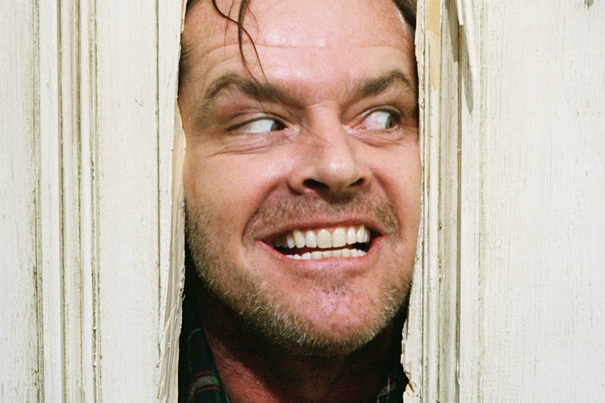
A few references are made in Get Out. At the beginning of the film as Andre walks through a suburban neighborhood at night, he refers to the area as a “hedge maze” as he has gotten lost. This is a direct reference to The Shining, as a hedge maze is where the climax of the film takes place. Additionally, Rod answers a phone call from Chris while he is working at the airport. While this call transpires, flight 237 is announced in the background, the same as the infamous hotel room number in The Shining.
Jordan Peele teases his next film, Us, at the beginning of Get Out. The very first song played in the film is “Run Rabbit Run.” Rabbits play a prominent role in Us, similarly to the role of the deer in Get Out. In an interview, Peele also mentions building on the Get Out universe in his next film, hinting that the end of this film is just the beginning of the cinematic universe he intends to create.

